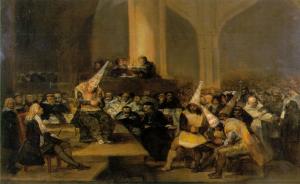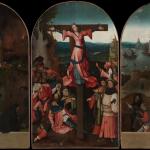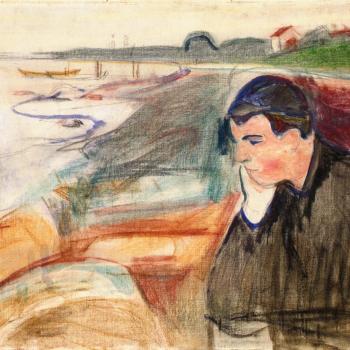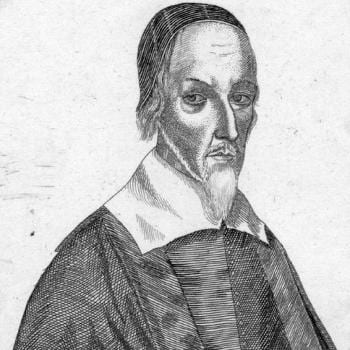
It may seem rather odd for a Catholic to juxtapose these two terms, to place the Faith alongside a word that’s most often taken to mean a misguided viewpoint, even a self-serving way of seeing. Many would say that the whole point of becoming Catholic is to enter into a relationship with Christ and His Church. Our goal is to avoid refracted and insufficient ways of seeing, to pursue the greatest good rather than deficient, created ones. Certainly that is what Fr. Henri Nouwen meant when he wrote:
Jesus was a revolutionary, who did not become an extremist, since he did not offer an ideology, but Himself. He was also a mystic, who did not use his intimate relationship with God to avoid the social evils of his time, but shocked his milieu to the point of being executed as a rebel. In this sense he also remains for nuclear man the way to liberation and freedom. (The Wounded Healer)
This tack is taken by both sides in our contemporary socio-political conflicts. From Nouwen’s perspective, concentrating on the person of Christ is key because it allows us to re-focus on the poor and the downtrodden. In Jesus we find a command to love without barrier or boundary; much the same could be said, for example, from the perspective of Dorothy Day. For those Catholics who emphasize social issues, a similar argument is made about, say, the unborn. There is an injunction to protect the weakest among us against aggression by the stronger. We are called with all of our hearts to love and serve God by keeping His commandments in all their stringency and concomitant alienation.
Both of these views are, of course, true. The Church requires us to defend the poor and broken (who, I might add, are only multiplying under our current economic system) even as it calls us to stand up for unpopular social stances (thereby loving God through respect and reverence for Him). These ideas, however, require application, and that is exactly where the question of ideology enters the picture. In this sense, it is unavoidable. Take, for example, Fr. Pavone’s infamous stunt with a fetus or what many have seen as the Pro-Life Movement’s betrayal of its own fundamental principles of charity in its single-minded drive to protect the unborn. Similarly, the “Seamless Garment” approach to sociopolitical questions has often been interpreted as a mere mask for a watered-down view of sociopolitical questions within a Catholic framework. Interpretation of principles, in this sense ideology, is simply a fact of life; it’s effectively just a way of describing our fallen attempts to live up to what has been enjoined upon us in all of our concupiscential misery. The contemporary philosopher and cultural critic Slavoj Žižek has put the issue more clearly than I could hope to:
In the more sophisticated versions of the critics of ideology – that developed by the Frankfurt School, for example – it is not just a question of seeing things (that is, social reality) as they ‘really are,” of throwing away the distorting spectacles of ideology; the main point is to see how the reality itself cannot reproduce itself without this so-called ideological mystification. The mask is not simply hiding the real state of things; the ideological distortion is written into its very essence… the moment we see it ‘as it really is,’ this being dissolves itself into nothingness or, more precisely, it changes into another kind of reality. That is why we must avoid simple metaphors of demasking, of throwing away the veils which are supposed to hide the naked reality. (The Sublime Object of Ideology)
Ideology is not a dreamlike illusion that we build to escape insupportable; in its basic dimension, it is a fantasy-construction which serves as a support for our reality itself; an illusion which structures our effective, real social relations and thereby masks some insupportable, real, impossible kernel. (The Sublime Object of Ideology)













